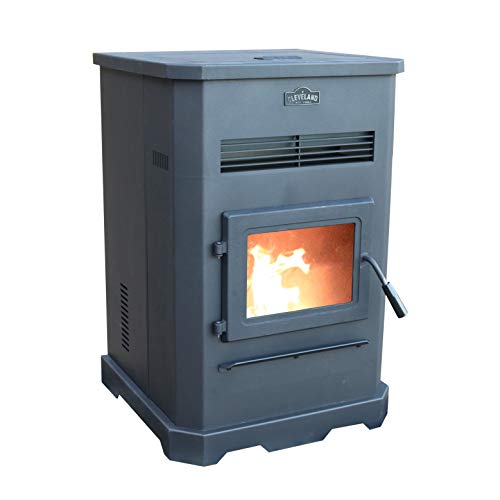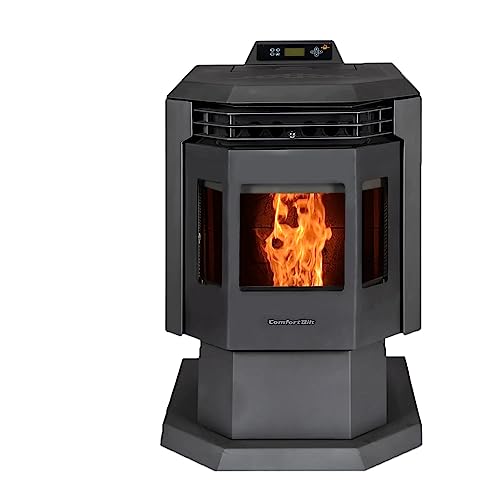What's The Job Market For Pellet Stoves For Rvs Professionals?
페이지 정보

본문
 pellet stoves small stoves for rvs (read full article) Vs Wood Stoves
pellet stoves small stoves for rvs (read full article) Vs Wood StovesRVs provide a comfortable camping experience, but cold nights require a reliable heat source. Wood stoves and pellets stoves are two options that are popular. Both have their advantages and the one that is best for you will depend on your requirements and preferences.
Pellet stoves are powered by a biomass fuel made from recycled wood chips and sawdust. They are extremely efficient and they offer consistent heat. They are also simple to use and don't produce harmful emissions.
Heating that is cost-effective
Pellet stoves for RVs are a viable alternative to propane-based heaters. They are made from renewable biomass source and have a high combustion efficiency, which can save you money over the course of. They also consume less energy, reducing carbon footprints and energy consumption. Furthermore, pellet stoves feature an incredibly compact design and can be used with any standard propane tank. This makes them an excellent choice for people who want to skip the hassle of refilling and the storage of propane tanks.
One of the most important characteristics of any stove is its capacity to warm an extensive area. A good stove can provide heat to the entire motorhome or camper. The top pellet stoves for RVs can supply up to 8,000 BTUs of heating enough to keep you warm and comfortable on a camping trip. Certain models come with programmable thermostats that automatically turn on and off the stove according to your schedule. They can also notify you when the pellets run out or need cleaning.
Both pellet and wood stoves are extremely efficient in heating and are a popular choice for RVs. They are both affordable, and they can be utilized in a variety climates. However, you must be aware of the distinctions between these two kinds of stoves prior to making a choice.
Wood stoves make use of wood for fuel, which has to be carefully gathered and stored. This can be a hassle for those who travel to remote areas. Wood can also absorb moisture from the atmosphere, which can cause problems with your RV's interior. However you can get various pressed wood composite fire logs for your stove in online retailers. These logs will let you focus on your trip instead of refilling your tank.
Convenient cooking
Pellet stoves are perfect for campers who love cooking. These stoves are designed to extract the greatest amount of heat from the fuel, resulting in high energy efficiency and low heating costs. They also feature automatic pellet feeding systems, as well as thermostatic controls that ensure constant temperatures. They can also be used in an emergency or during a power outage to serve as a backup heating source.
Wood stoves are another popular option when RV camping. They provide a traditional, comfortable camping experience, and are a great option for boondocking (camping without hookups). However they require constant care and regular cleaning of creosote and ashes build-up. They also rely on firewood which can be costly in remote areas and is difficult to find. They also require adequate ventilation in order to prevent the accumulation of carbon monoxide and smoke in the camper.
Pellet stoves are more convenient than wood stoves, offering the same heating performance and comfort, but needing significantly less maintenance. They are also less expensive than gas heaters and produce less ash and particles. Pellet stoves are also more ecologically friendly than wood stoves, since they operate as an almost carbon-neutral source of energy.
Pellet stoves may be more practical than wood-burning stoves but they still require power from an electrical source. If your electricity is not working the stove will not perform as it should and could lead to a dangerous situation. It is a good idea to have a backup generator or power-outage plan in place to ensure your security and warmth. Fortunately, many pellet and wood stoves come equipped with battery-backup systems or manual ignition options to help prevent these issues.
Multi-faceted
wood pellet stove pellet stoves are an excellent option for RVs since they are cost-effective and efficient in heating, while providing a cozy atmosphere. They can also be utilized as a backup in the event of a power outage. Some models are equipped with a battery backup system that ensures continued operation. Pellet stoves are also simple to operate and require little maintenance. However, it's important to remember that they require proper installation and ventilation.
Pellet stoves produce a clean, odorless heat, unlike propane stoves that emit gases and moisture. They are also more efficient than traditional wood stoves and produce more heat at a faster rate. Pellet stoves aren't just excellent for heating but they can also be used to cook, turning your RV into a fully-functional kitchen. This feature is particularly useful in remote areas, and it can also save you money on eating out.
In addition to being more affordable They are also more secure than electric and gas models. The outdoor pellet stove stoves also emit less smoke, reducing the chance of fire and indoor air pollution. However, you should be aware that they do require an amount of power to operate their automatic ignition and pellet feed systems. In addition, they could require more frequent pellet refills than gas stoves.
While a lot of people install wood stoves in their RVs, be aware of some considerations and limitations before installing one. For instance, you'll need to keep the wood supply close by and ensure that the RV has enough storage space to accommodate the hopper of the stove. Wood stoves can also cause ceilings and walls to warp or blister. Consider a stove that has an insulation layer or a surface-protection kit.
Compact
Pellet stoves are able to be used conveniently and are compact. They are perfect for RVs because they have a powerful output and an efficient combustion process. They also disperse heat evenly, which ensures the most comfortable camping experience. You can easily control the amount of heat you wish to produce and maintain the same temperature. The SoloWilder Camping Pellet Stove for example, has a durable design and a highly efficient heating system, making it a great option for campers.
The fuel hopper holds the pellets that are then introduced into the burn pot by an auger. The pellets are typically composed of wood byproducts and sawdust, however some stoves will accept other biomass, such as corn kernels or nutshells. The fuel is dense, which makes it burn hotter and cleaner, reducing waste and smoke emissions. These stoves are highly efficient in energy use and have an energy efficiency ranging from 70 to 83%.
Most pellet stoves are low-maintenance and operate more easily and light than traditional wood stoves. They can be noisy and they require a location to store pellets that is cool and dry. They're also electric and require power (not suitable for camping off-grid). If you're thinking about a pellet stove, make sure to choose one that has earned an energy efficiency certification.
Pellet stoves are more expensive and require more storage space than traditional wood-burning fireplace places. The pellet bags are costly and can use up 40 pounds per day. They also require electricity, which could drain your battery backup.
Safety
Pellet stoves let you enjoy a warm fire in your RV without having to store or transport firewood. They produce less smoke and ash and are more easy to light than wood stoves. They also create a warm and cozy atmosphere. It is important to be aware of the health risks associated when using a pellet stove. Individuals with pre-existing respiratory conditions as well as children and older adults should be extra cautious and seek medical advice prior to using a stove.
Most models come with an electronic control system that automatically feeds pellets into the combustion chamber and allows them to burn at the speed you want. They also come with thermostats that can be programmed to maintain the desired heat level. Additionally, they come with an automated cleaning system that sucks up the accumulated ashes and clinker.
However, despite these advanced features the pellet stove requires electricity and ventilation to run. It might not function during a power loss. In such instances, you should have a backup plan, such as a generator for your heating needs.
Another issue with pellet stoves is the combustion process, which releases toxins and carbon monoxide into the air. This is a significant problem for people suffering from chronic respiratory illnesses like COPD or asthma. Carbon monoxide detectors are vital for homes. They should be installed in the vicinity of bedrooms, on every level of the home and tested on a regular basis.
 pellet stoves dealers near me stoves can be ideal for camping, especially in areas that have severe winter weather. They are simple to operate and cost-effective, but require electricity to run. However, if you plan to camp off grid for long periods of time it's essential to prepare ahead and ensure that you have enough wood to provide fuel for the stove.
pellet stoves dealers near me stoves can be ideal for camping, especially in areas that have severe winter weather. They are simple to operate and cost-effective, but require electricity to run. However, if you plan to camp off grid for long periods of time it's essential to prepare ahead and ensure that you have enough wood to provide fuel for the stove.

